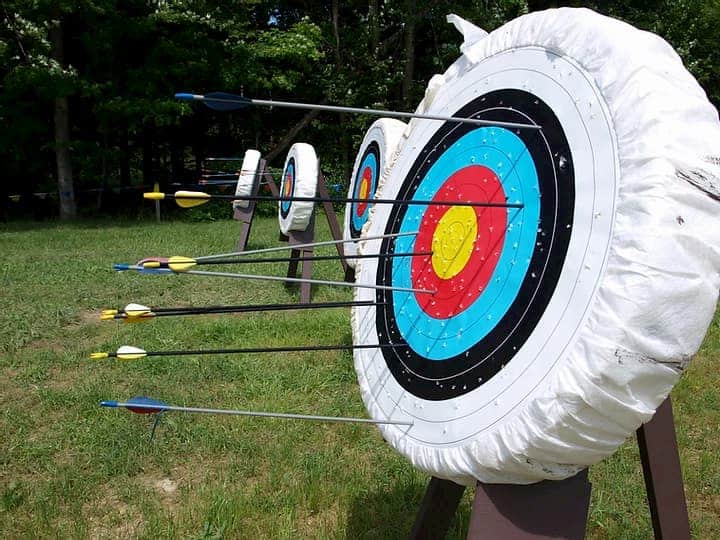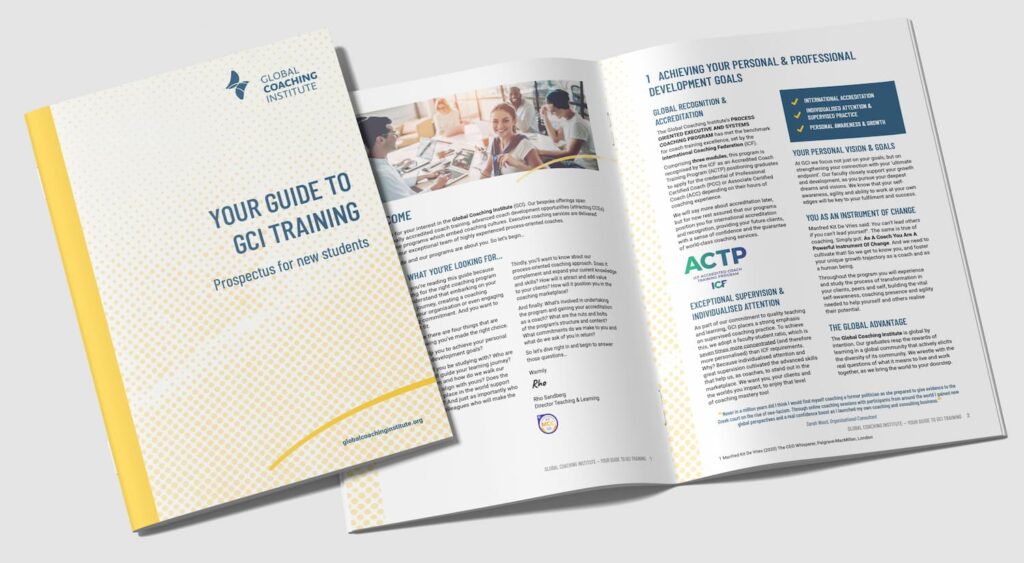At the Global Coaching Institute we believe one of the markers of an advanced coach is their precision. What do we mean by that?
Imagine you’re a patient about to undergo surgery. Do you want your surgeon to open you up and go rummaging around for a problem? No. You want to know that your surgeon won’t waste your time looking for a brain tumor in your armpit. You want them to have expert knowledge of anatomy and physiology. You want them to understand the structure of your body and the invisible dynamics that guide its functioning. It is both their advanced knowledge and their ability to apply it to your specific body that ensures your trust in them.
At the Global Coaching Institute we apply this logic to our coaching education programs. This means training our students in a thorough comprehension of the dynamics of change within an individual. It also means extending beyond the realm of individual psychology into a systems view of how individuals relate within their environment and the influence cultural, social and environmental factors have on the individual. Just as you would expect your surgeon to understand more than the workings of a single, isolated organ; we believe our coaches should understand how psycho-social systems work as a whole.
What Distinguishes A Process Oriented Coach?
-
Process-oriented coach’s have a deep understanding of the many factors that influence their client’s wellbeing and the ease or challenges they face.
-
Process oriented coaches are alert to social dimensions of their client’s experiences and dilemmas: such as the way dominant messages about gender, race or ethnicity that impact a person’s self-concept and the systemic biases some have to navigate.
-
Process oriented coaches are alert to systemic dynamics such as organisational politics, team relationships and the way role structures influence behavior.
However, there is something else that adds to the Process Oriented Coach’s precision – something that goes far beyond any background understanding of the anatomy and physiology of growth and change. It is something that takes place in the moment and is dependent on the acuity of the coach’s observational skills.
Given that my earliest career was in the field of neurology, I have always found neurosurgery fascinating! In neurosurgery, precision is everything. So much so, that in many neuro-surgical procedures the client is awake. This is because the surgeon needs the client to be able to provide feedback throughout the entire procedure. Waiting until the client wakes up to see whether the surgeon was on the right neural pathway is not an option.
At GCI we believe that the same principle applies to coaching: an exquisite ability to notice and receive to feedback underpins masterful coaching. Learning to follow client feedback helps coaches know which path of inquiry to take.
At the Global Coaching Institute, we train our coaches in how to expertly read their clients’ feedback in order to create successful partnerships. They learn how to recognize power differential signals within the coaching relationship and when their feedback is skewed in favor of pleasing the coach.
We also educate emerging coaches about something truly ground-breaking – the feedback mechanisms that reflect the conscious and unconscious mind of the client. Let’s say for instance that your client excitedly proclaims that they could NEVER do that. Yet they smile, laugh and become animated. What part of this feedback do you follow? The words, or the animated laughter? The Process-Oriented practitioner’s acuity lies in their ability to spot both pieces of feedback and know how to work with them simultaneously in order to promote growth and change.
Of course, coaches are not surgeons. But it’s exactly that level of precision and acuity, along with great skills in partnering, that clients seek. For a Process-Oriented Coach, the energetic dimensions of feedback – as much as a client’s words – inform the coaching path. This not only ensures that the client is in good hands. It guarantees that you as a coach will pick up on the subtle cues and clues others miss. And that’s a real value add.
If you are interested in developing greater precision and acuity in your coaching practice, check out of forthcoming programs.
Please connect with us to request our What Is Process Oriented Coaching Whitepaper.




